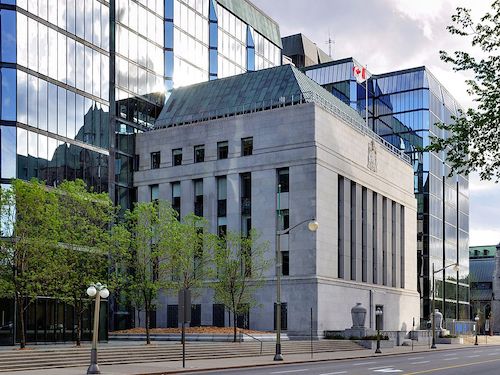Financial regulators—including the Financial Stability Board, the international umbrella group of central banks and banking supervisors, and the newly-formed Network for Greening the Financial System, which comprises 31 central banks and regulators from around the world—are becoming increasingly concerned about the creditworthiness of borrowers exposed to the risks of climate change.
The OSFI pilot study analyzed four climate scenarios aligned around the Paris Agreement to limit global warming below 2°C and the more ambitious 1.5°C goal by 2100.
The pilot study reported findings from a sample of six large financial institutions, including the Royal Bank of Canada, TD Bank Group, Intact Financial Corporation, Co-operators Group Limited, Sun Life Financial, and Manulife Financial Corporation.
In contrast, the probability of default for a renewable electricity producer is expected to fall by up to five to 15%.
For example, the Caisse de dépôt et placement du Québec has said it will unload its oil-producing holdings by the end of 2022.
Canada is the only major G7 country without a national securities regulator.
The study is ill-timed for Alberta, where the oil and gas industry may now be spending more on capital investment and where Premier Jason Kenney will face a leadership review in April.
A major rupture at one of the oilsands tailings ponds—the engineered lakes that contain wastewater, sand, silt, residual bitumen, and petrochemical waste from the oilsands mining process—would expose some of Canada’s largest financial institutions to enormous liability if an unforeseen event like this occurred.
We can expect federal financial institutions and their prudential regulators to be carrying out intensive credit and supervisory reviews of both oil and gas and oilsands borrowers in the coming months.
